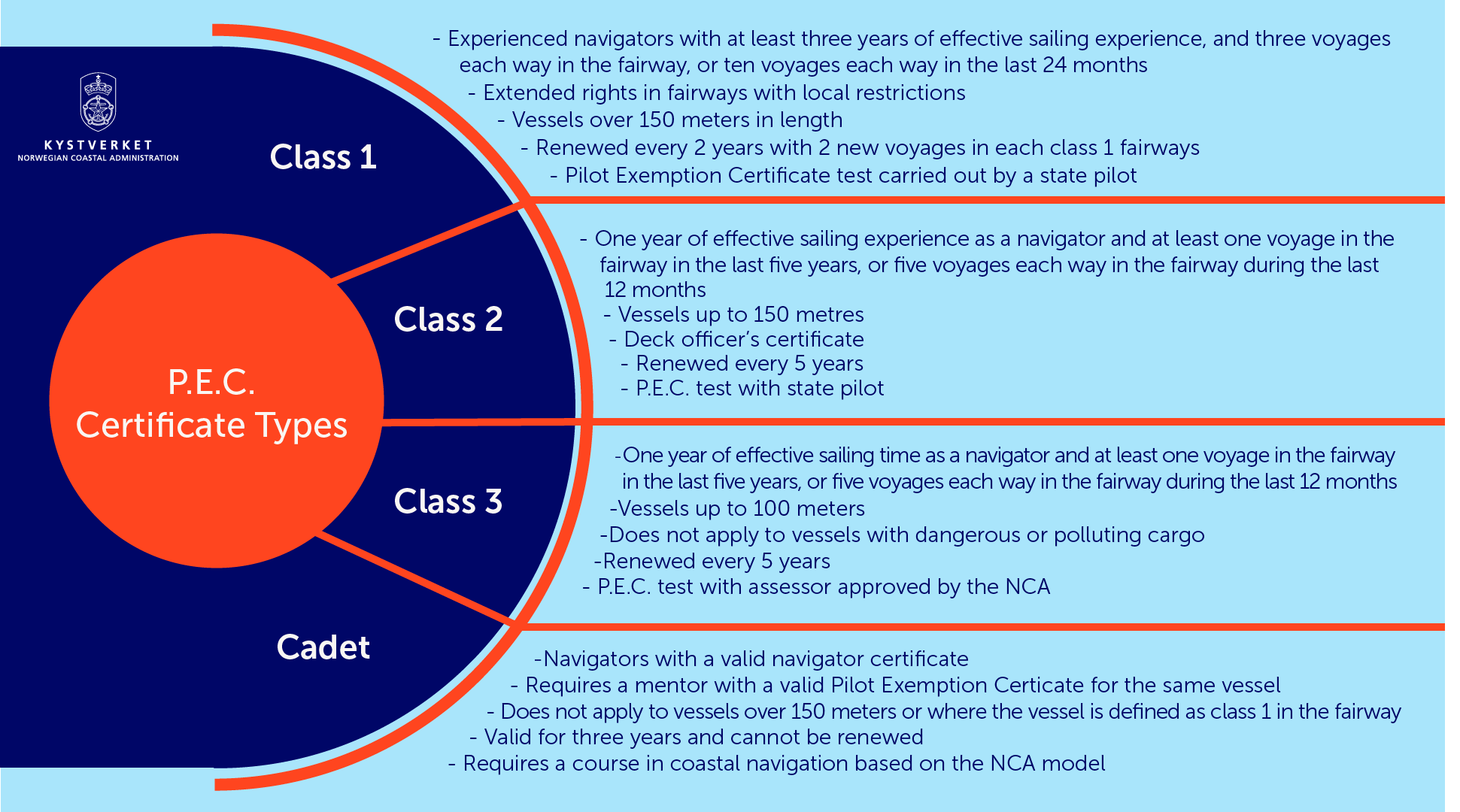Contact the Pilotage Exemption Certificate Unit
Are you having problems with your application, or do you have questions or want to know more about the practical arrangements for the Pilotage Exemption Certificate (PEC)?
If you cannot find the information you are looking for on this website, you can contact our admin staff as follows:
Email:
Telephone: +47 33 03 48 08
Opening hours:
- September to 14 May: Monday to Friday 8am-3.45pm
- May to 14 September: Monday to Friday 8am-3.00pm
The PEC scheme is an official control of the navigator’s experience, competence and skills in specific waters.
In order to obtain a PEC, you must:
- have a valid deck officer certificate;
- meet the requirements for sailing experience;
- have passed a PEC exam.
Navigators can apply for a new, extended or renewed PEC.
You can apply:
- for a PEC, if you have not had one before;
- to add new vessels to your existing PEC;
- to add new areas to your existing PEC;
- renew your PEC.
Electronic processing and language alternatives
The PEC scheme is electronic, and it is administered via the online monitoring and information system SafeSeaNet Norway. This system is linked to the EU’s SafeSeaNet system, and the working language is therefore English. Navigators can choose between Norwegian and English when creating a user profile in the system.
